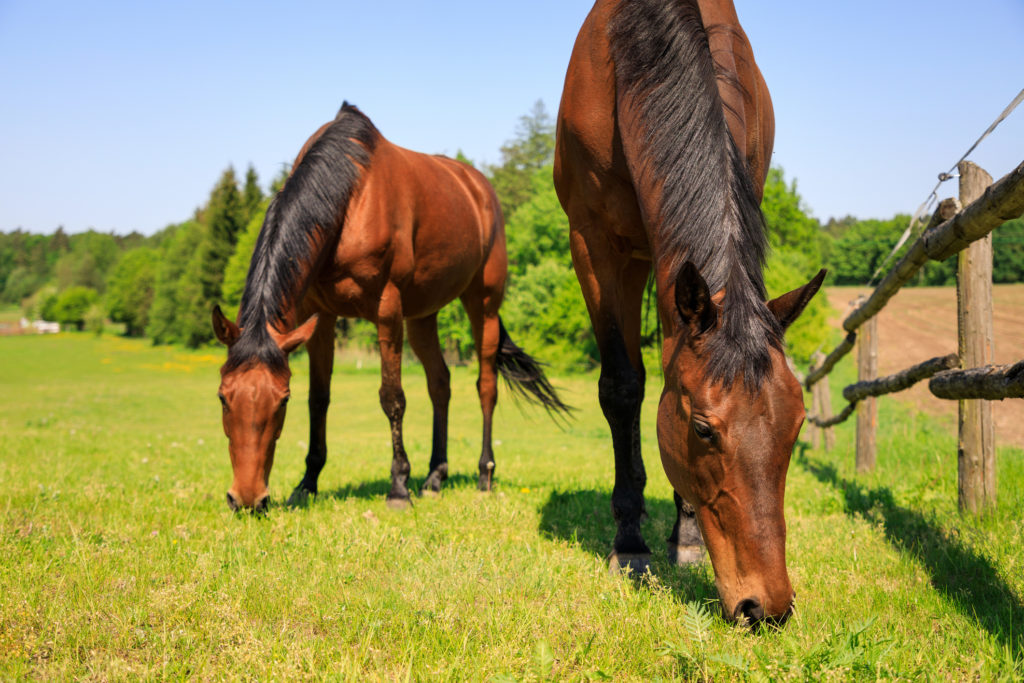Locking Down Your Feeds
Grain and hay storage isn’t a complicated process, but it is an integral part of horse management.
Proper feeding practices for foals, adult horses, and older horses
Grain and hay storage isn’t a complicated process, but it is an integral part of horse management.
Have you ever taken a really good look at all of your horse’s water sources, whether he is drinking from a large tank, pond, or automatic waterer? Have you asked yourself, Would I drink this water? Do I really expect my horse to drink it? If”P>Have you ever taken a really good look at all of your horse’s water
In a society that is trying to slow the aging process, free radicals and antioxidants are terms that are regularly tossed around.
There they are: Your two best friends. Fred has been your buddy since you were a teenager, sharing your victories and disappointments, always steadfast and reliable. Bonnie has only been part of your life for a couple of months, but you’ve hit i

The axiom, “You are what you eat” does have relevance to horses with regard to health and well-being. Here’s a review some of the more common dietary problems that affect various organ systems in the horse.

Antioxidants (which include vitamins E, C, and A, selenium, glutathione, lipoic acid, coenzyme Q10, and isoflavins) act to stabilize free radicals and halt oxidative damage. Here’s a look at how they function.

Could feeding antioxidants to your horse help him through a performance problem? Antioxidants, whether found in the diet or supplemented, could potentially help exercising horses experiencing oxidative stress, one nutritionist says.
Ever wonder why some minerals (such as copper, zinc, iron, and selenium) are referred to as “trace minerals” while other minerals (such as calcium and phosphorus) are not?
Have you heard of horses getting colic from frozen sweet feeds?
Earlier this year, the Association of Animal Feed Control Officers (AAFCO, a non-profit organization of state and federal feed regulators that has no regulatory power, but helps guide national interpretation of feed laws) planned to select one o
What is the best formulation of probiotics and yeast in the equine diet? Which bacteria are beneficial?
The Enforcement Strategy for Marketed Ingredients (ESMI) Working Group of the Association of Animal Feed Control Officers (AAFCO) cited an increasing number of unapproved or undefined ingredients appearing in animal feed and pet food as well as
Garlic has been touted to have many health-related properties, from boosting your horse’s immune system to repelling bugs just by the garlic odor in his sweat. In a recent study completed at the Equine Research Centre in Guelph, Ontario, a garli
Leave your saddle sitting in a corner of your tack room after you and your horse are caught in a rainstorm, and you’ll get an eye-opening look into the world of fungi and molds. Within days, your leather tack will have sprouted a patchy coat of
Science is beginning to catch up with traditional uses of “holistic” medicine, and it is important to understand the reasons and risks behind using herbal products. The third annual Nutraceutical Alliance (NA) conference was held May 10-11, 2002
Your young horse is growing up. From birth to age two, a horse will achieve 90% or more of his full adult height. But growing up too fast can cause problems, including an increased risk of developmental orthopedic disease (DOD), which includes which includes several skeletal problems in growing foals.
Stay on top of the most recent Horse Health news with
"*" indicates required fields